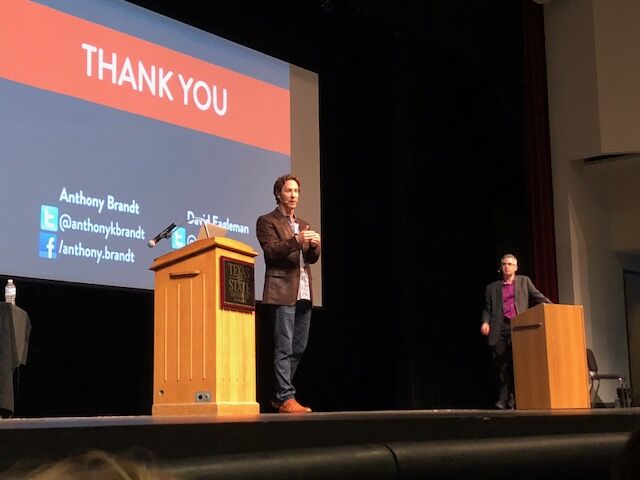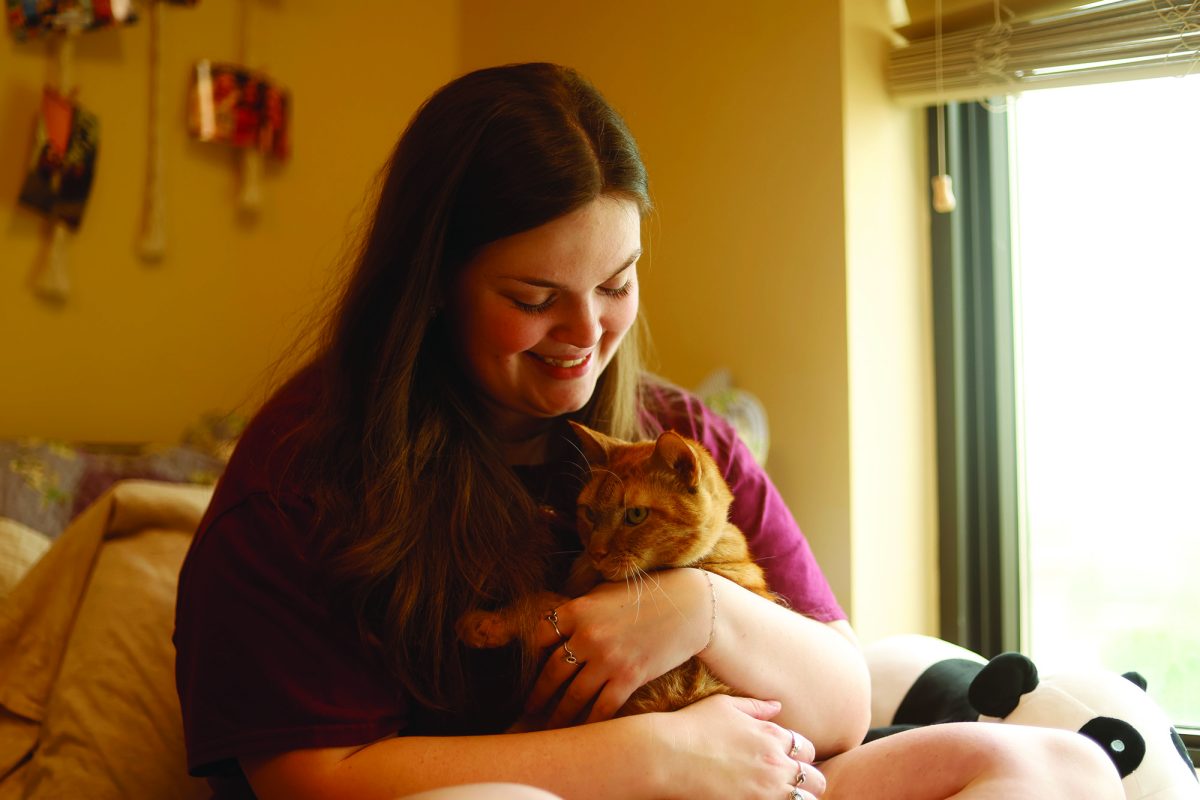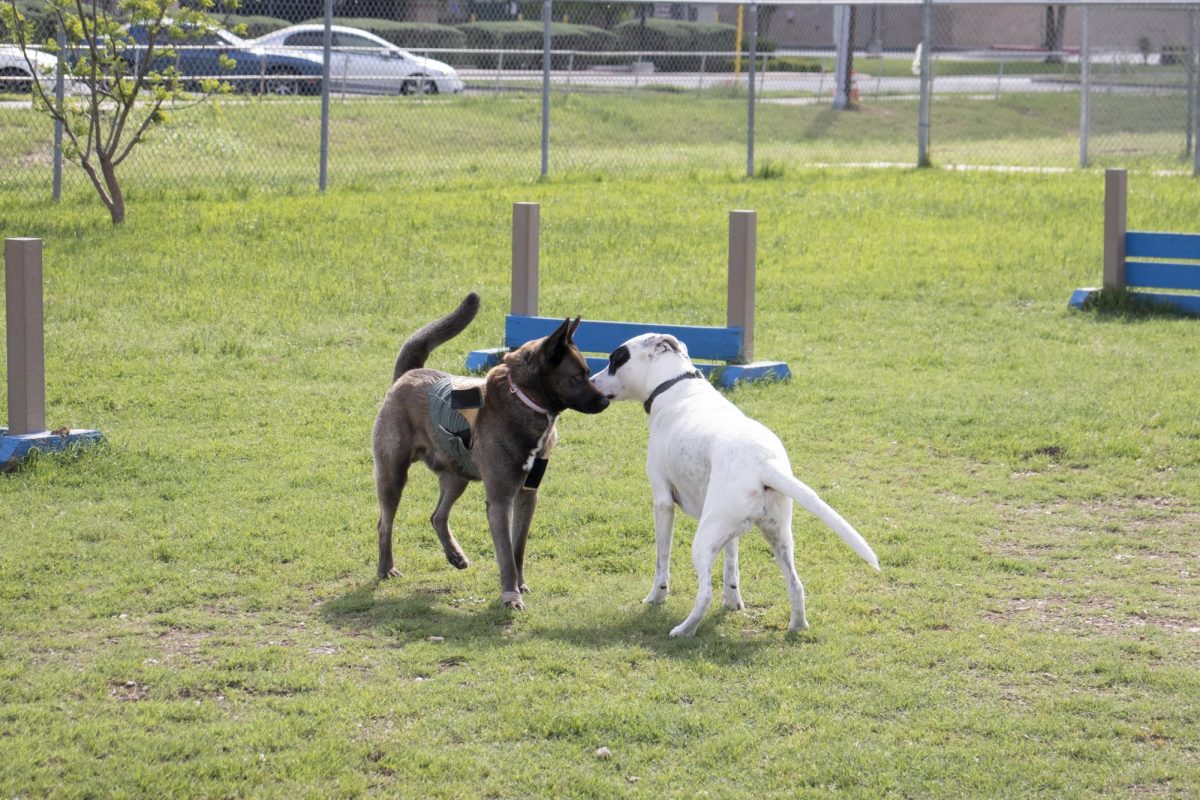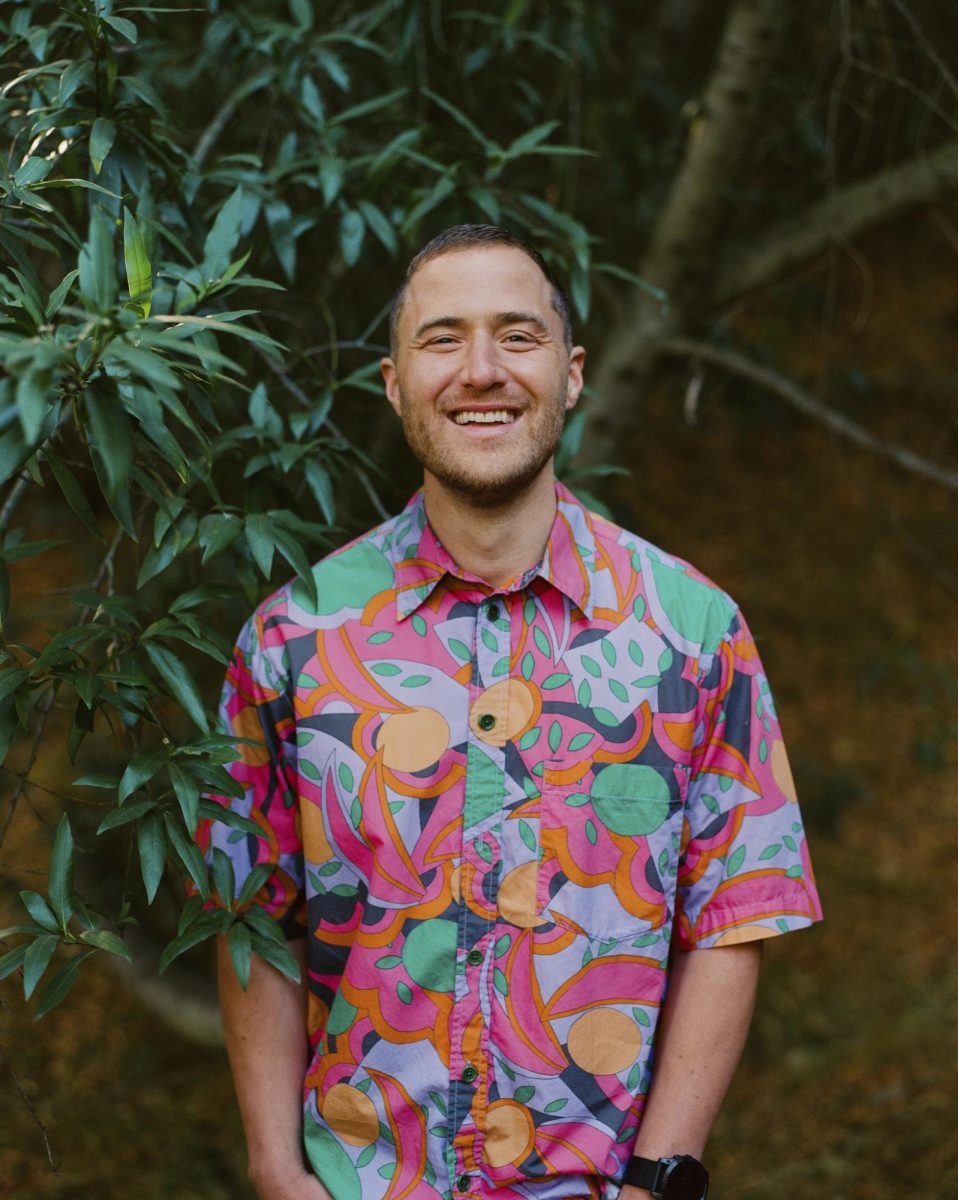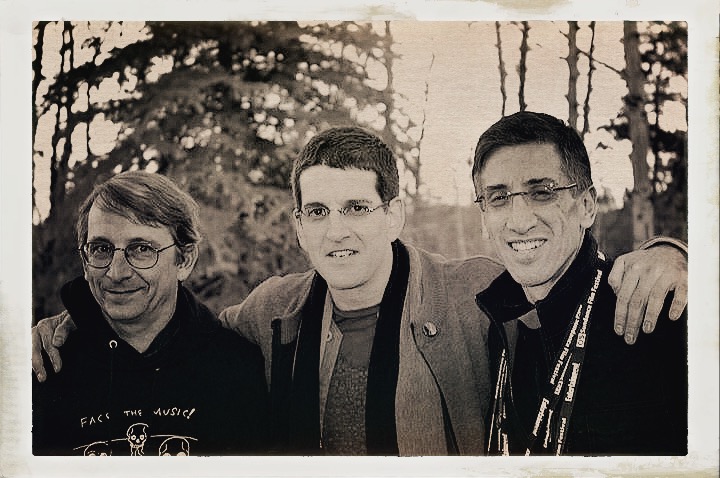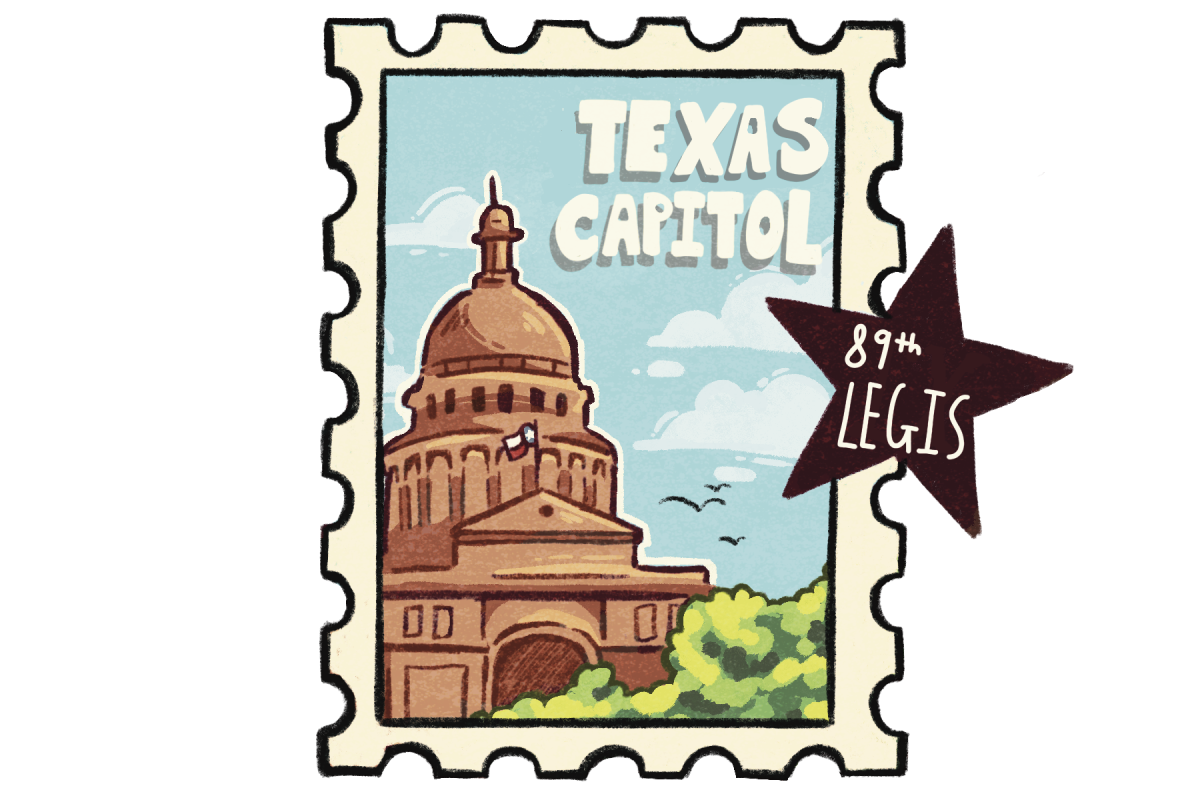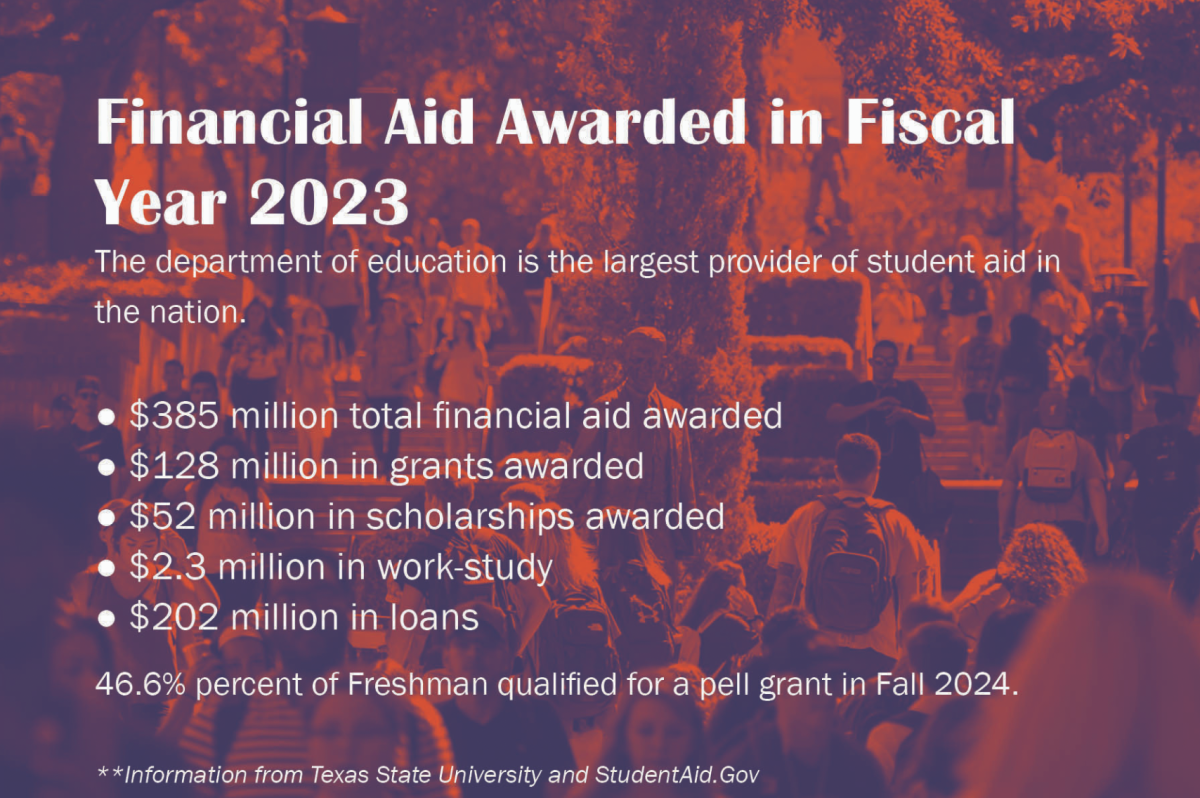The authors of the 2018 Common Experience book visited Texas State Sept. 24 to discuss creative processes and innovation in society.
Neuroscientist David Eagleman and Rice University Professor Anthony Brandt said at the Common Experience event at Evans Auditorium that creativity is important to society as a means for development and advancement, as written in their book, “The Runaway Species”
During the lecture, Eagleman said creativity belongs to all and everyone has the capability to innovate.
“The basic software of how human brains work is that they absorb everything around them, they remix it and spit out new versions of it,” Eagleman said. “And this is true for all human brains.”
On the process of innovation, Eagleman and Brandt explained the three creative tools needed for any successful invention: bending, breaking and blending. Together, Eagleman and Brandt described bending as twisting an object or idea out of its original shape, breaking as taking apart an object and breaking it into smaller pieces and blending as merging ideas together.
The authors used real-world examples, visual representations and audio to help the audience better understand the concepts.
“Bending, breaking, and blending are the main brain operations that underline innovative thinking,” Eagleman said. “What we do is we run around and we apply these basic strategies to everything around us.”
Eagleman shared with the audience one of his most recent innovative projects for a specialized prosthetic leg. This leg contains pressure angle sensors, which allow the person to feel what the leg is doing. Kessa Kupec, exercise and sports science freshman, said she is particularly interested in this invention as it will play a role in her future career path.
“In my career, I’ll probably have to work with (prosthetics) a lot and the innovation that comes with that,” Kupec said. “Historically, prosthetics have been really difficult to work with but now they’re getting to the point where they’re exceeding the biological limits that we already have.”
The authors took questions from audience members following the presentation, including questions on a possible limit to innovation and if sometime in the future, creation would no longer be possible. According to Brandt, innovation will always be a part of human nature because people will never run out of ideas.
“There is no finish line. Each generation passes the artistic baton to the next,” Brandt said. “The software of creativity never stops running in our brains, it is our biological nature.”
Cassidy Bowland, English freshman, said she found it more helpful having Eagleman and Brandt present to speak about the book’s main concepts.
“Reading the book was something we had to do, but after coming to (the event) it’s been very interesting to be able to see and listen to the authors,” Bowland said. “It makes the book’s content a lot more engaging.”
At the end of the evening, Brandt shared the motivation he and Eagleman had for writing the book. After learning many art programs in public schools were being shut down, Brandt said one of their prime motivators was to change the school system.
“Success for our book is to change education,” Brandt said. “A goal of the book was to say that everything we say in the book can be turned around and used in a classroom. Creativity is what got our species to where we are and everybody deserves to have that nurtured and cultivated.”
More Common Experience events can be found on the program’s website.
Categories:
Common Experience book authors emphasize creativity in innovation
September 27, 2018
David Eagleman (left) and Anthony Brandt (right) spoke about the role of creativity for innovation Sept. 24 at the Evans Auditorium.
Photo By Abby Gutierrez
0
Donate to The University Star
Your donation will support the student journalists of Texas State University. Your contribution will allow us to purchase equipment and cover our annual website hosting costs.
More to Discover



